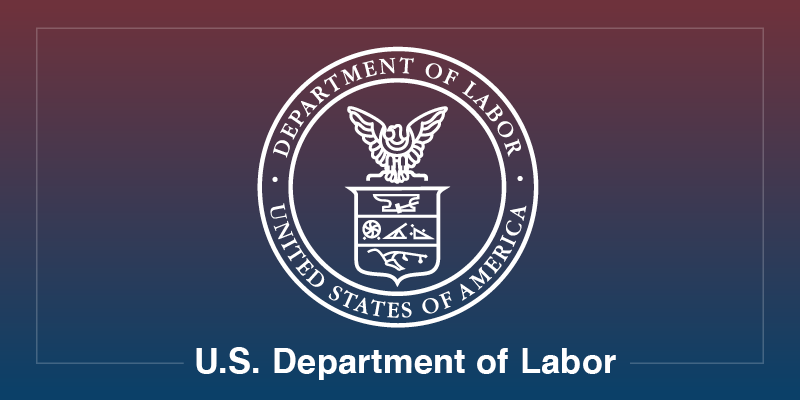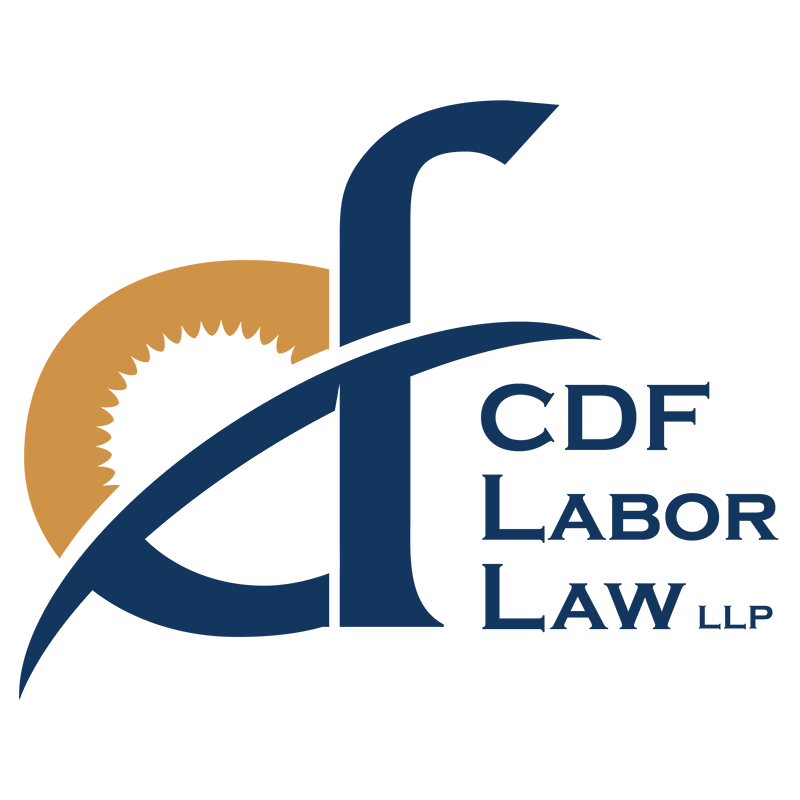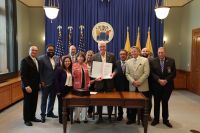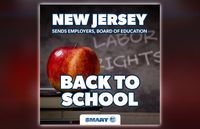Explore web search results related to this domain and discover relevant information.

Governor Hochul signed legislation to strengthen and expand labor protections statewide, helping to create good paying union jobs.
Governor Kathy Hochul signed legislation to strengthen and expand labor protections statewide. The package of bills will help create good paying union jobs and strengthen protections for workers across the state. In the absence of a functional National Labor Relations Board under the Trump Administration, the package of bills also includes legislation that seeks to preserve worker rights here in New York.Legislation S.8034A/A8590A which authorizes the New York State Public Employment Relations Board to assert jurisdiction over disputes between employers and recognized employee organizations if the National Labor Relations Board is unable to successfully assert jurisdiction.Public Employee Relations Board Chair Timothy Connick said, “As the current administration continues to sideline longstanding labor institutions like the National Labor Relations Board, it is more important than ever that New York State step up to defend the rights of workers and create fair venues to resolve labor disputes.This law ensures that layoffs or suspensions cannot be used to discard the rights won at the bargaining table. I thank Governor Hochul for signing this bill into law and standing with us. I am also proud to co-sponsor the companion measures signed today — together, these laws strengthen the voice of labor and uphold the dignity of every worker across our state.”

Wisconsin Democrats are once again introducing labor rights legislation, designed to repeal laws enacted by Republican former Gov. Scott Walker. The proposals face a difficult road in Wisconsin's GOP-controlled Legislature.
Additionally, the package would repeal a Walker-era ban on the use of project labor agreements by state and local governments. Those agreements allow governments to strike a deal with one or more labor unions before work starts on a given project.Republicans say right-to-work gives employees the freedom to choose. But Democrats have blasted the law for weakening organized labor, by cutting down on the size and financial power of union membership.“Worker misclassification occurs when employers label employees as independent contractors to avoid legal responsibilities such as payroll taxes, minimum wage and overtime pay, workers’ compensation, unemployment insurance and health and safety protections,” a cosponsorship memo attached to the draft bill says.
U.S. Department of Labor

It protects union funds and promotes union democracy by requiring labor organizations to file annual financial reports, by requiring union officials, employers, and labor consultants to file reports regarding certain labor relations practices, and by establishing standards for the election ...
The Fair Labor Standards Act prescribes standards for wages and overtime pay, which affect most private and public employment. The act is administered by the Wage and Hour Division. It requires employers to pay covered employees who are not otherwise exempt at least the federal minimum wage and overtime pay of one-and-one-half-times the regular rate of pay.If you worked for a private company or a state government, you should contact the workers' compensation program for the state in which you lived or worked. The U.S. Department of Labor's Office of Workers' Compensation Programs does not have a role in the administration or oversight of state workers' compensation programs.It protects union funds and promotes union democracy by requiring labor organizations to file annual financial reports, by requiring union officials, employers, and labor consultants to file reports regarding certain labor relations practices, and by establishing standards for the election of union officers.Most labor and public safety laws and many environmental laws mandate whistleblower protections for employees who complain about violations of the law by their employers. Remedies can include job reinstatement and payment of back wages.

One of the top employment, labor and immigration firms in California, defending employers in single-plaintiff and class action lawsuits and advising employers on related legal compliance and risk avoidance.
For over 30 years, CDF has distinguished itself as one of the top employment, labor and immigration firms in California, representing employers in single-plaintiff and class action lawsuits and advising employers on related legal compliance and risk avoidance.


Under the new law, employers cannot ... labor organizations or listen to related communications. Rhode Island joins 12 other states that have similar legislation, including California, Connecticut, Illinois, New Jersey, and New York. The law is effective immediately. Some state laws are facing legal challenges, ...
Under the new law, employers cannot discharge, discipline, or otherwise penalize employees for refusal to attend employer-sponsored meetings regarding labor organizations or listen to related communications. Rhode Island joins 12 other states that have similar legislation, including California, Connecticut, Illinois, New Jersey, and New York. The law is effective immediately. Some state laws are facing legal challenges, however.Employers should closely monitor state-level developments, review existing labor policies for compliance with emerging state laws, and coordinate with counsel to anticipate litigation risks and avenues to challenge state labor regulation. · ©2025 Jackson Lewis P.C. This material is provided for informational purposes only. It is not intended to constitute legal advice nor does it create a client-lawyer relationship between Jackson Lewis and any recipient.TakeawaysRhode Island became the 13th state banning mandatory “captive audience meetings.”Oregon and Washington will offer unemployment benefits to qualified striking workers starting 01.01.26.New York and other states are seeking to regulate private labor disputes while the Board lacks a quorum, raising federal preemption concerns.Related linksThe National Labor Relations Board remains without a quorum, leaving key decisions and enforcement actions on hold. In the meantime, state legislatures across the country have introduced new labor laws that increase employer obligations — often in areas traditionally under federal oversight.

New York Governor Kathy Hochul signs legislation to strengthen worker and labor protections, create jobs in renewable energy, and improve energy efficiency.
New York Governor Kathy Hochul signed a package of legislation to strengthen worker and labor protections, create new jobs in renewable energy and mechanical insulation, and grant a state labor boa…The new laws will establish new rights for public employees, create new job opportunities in renewable energy and mechanical insulation, and grant a state labor board the authority to intervene in certain private sector disputes if the federal board fails to act.The bills establish new rights for public employees, create new job opportunities in renewable energy and mechanical insulation, and grant a state labor board the authority to intervene in certain private sector disputes if the federal board fails to act.The new laws aim to create union jobs and protect workers, with the governor explaining that states like New York should “stand up to do whatever we can to protect the men and women who for centuries have built this city and this state into what it is.” Signing the bills at the New York City Labor Day Parade, Hochul owed the new laws to federal moves.
Upon filing of any such petition ... of a labor organization (1) in the district in which such organization maintains its principal office, or (2) in any district in which its duly authorized officers or agents are engaged in promoting or protecting the interests of employee members. The service of legal process upon ...
Upon filing of any such petition the courts shall cause notice thereof to be served upon any person involved in the charge and such person, including the charging party, shall be given an opportunity to appear by counsel and present any relevant testimony: Provided further, That for the purposes of this subsection district courts shall be deemed to have jurisdiction of a labor organization (1) in the district in which such organization maintains its principal office, or (2) in any district in which its duly authorized officers or agents are engaged in promoting or protecting the interests of employee members. The service of legal process upon such officer or agent shall constitute service upon the labor organization and make such organization a party to the suit.(1) The term "person" includes one or more individuals, labor organizations, partnerships, associations, corporations, legal representatives, trustees, trustees in cases under title 11 of the United States Code [under title 11], or receivers.(c) [Jurisdiction] For the purposes of actions and proceedings by or against labor organizations in the district courts of the United States, district courts shall be deemed to have jurisdiction of a labor organization (1) in the district in which such organization maintains its principal offices, or (2) in any district in which its duly authorized officers or agents are engaged in representing or acting for employee members. (d) [Service of process] The service of summons, subpoena, or other legal process of any court of the United States upon an officer or agent of a labor organization, in his capacity as such, shall constitute service upon the labor organization.(c) [Exceptions] The provisions of this section shall not be applicable (1) in respect to any money or other thing of value payable by an employer to any of his employees whose established duties include acting openly for such employer in matters of labor relations or personnel administration or to any representative of his employees, or to any officer or employee of a labor organization, who is also an employee or former employee of such employer, as compensation for, or by reason of, his service as an employee of such employer; (2) with respect to the payment or delivery of any money or othe
As the Labor Day holiday approaches, the New Jersey Department of Labor and Workforce Development (NJDOL) is celebrating the nearly 4.4 million New Jerseyans whose hard work and contributions to their communities are the backbone of a vibrant and thriving economy.
TRENTON – The New Jersey Department of Labor and Workforce Development (NJDOL) and the New Jersey Office of the Attorney General (OAG) today announced an Assurance of Voluntary Compliance (AVC) with video game retailer GameStop, Inc., in a collaborative effort to raise awareness of New Jersey’s Earned Sick Leave Law (ESLL) among the retailer’s New Jersey employees.The agreement underscores GameStop’s commitment to complying with New Jersey’s labor laws to improve its Garden State workers’ knowledge of their right to paid sick time to care for themselves or their loved ones under the state’s robust labor laws.“We are excited to join the Office of the Attorney General and GameStop as partners in this voluntary agreement that will help to raise awareness of New Jersey’s earned sick leave benefits for GameStop employees across the Garden State,” said Labor Commissioner Robert Asaro-Angelo.

“In less than nine months, the new administration has transformed more than six decades of labor and employment policy,” Littler Workplace Policy Institute experts said.
The beginning of President Donald Trump’s second presidency has already included “dramatic changes” in labor and employment policy and law — and more are expected, Littler’s Workplace Policy Institute said in its 2025 Labor Day Report, released last week.Days after taking office, Trump fired a number of officials at the U.S. Equal Employment Opportunity Commission and National Labor Relations Board, among other independent agencies.At the federal level, lawmakers are considering the Faster Labor Contracts Act, which was proposed in the spring to speed up labor-management negotiations, Littler said.On Sept. 4, days after the report was issued, the U.S. Department of Labor confirmed that it intends to revisit its overtime regulations under the Fair Labor Standards Act.

New Jersey Gov. Phil Murphy signed into law two bipartisan, pro-labor bills on Wednesday that will benefit working people in the state.
One of the pieces of legislation bans captive audience meetings, requires that employers clearly communicate to their staff that attendance is voluntary and also protects workers from retaliation if they choose to not sit in on these meetings. The other bill requires that social studies classes for grades 6–12 provide education on the rich contributions, history and heritage of the labor movement.“Governor Murphy has signed a significant amount of pro-labor legislation into law over the past seven and a half years, and the addition of these two laws further illustrates his commitment to working families and unions,” said Charles Wowkanech, president of the New Jersey State AFL-CIO.
Contracts between employees and employers (mostly corporations) usually begin an employment relationship, but are often not enough for a decent livelihood. Because individuals lack bargaining power, especially against wealthy corporations, labor law creates legal rights that override arbitrary ...
Contracts between employees and employers (mostly corporations) usually begin an employment relationship, but are often not enough for a decent livelihood. Because individuals lack bargaining power, especially against wealthy corporations, labor law creates legal rights that override arbitrary market outcomes.For example, in Donovan v. Bierwirth, the Second Circuit held that trustees of a pension which owned shares in the employees' company as a takeover bid was launched, because they faced a potential conflict of interest, had to get independent legal advice on how to vote, or possibly abstain. Remedies for these duties have, however, been restricted by the Supreme Court to disfavor damages. In these fields, according to §1144, ERISA 1974 will "supersede any and all State laws insofar as they may now or hereafter relate to any employee benefit plan". ERISA did not, therefore, follow the model of the Fair Labor Standards Act of 1938 or the Family and Medical Leave Act of 1993, which encourage states to legislate for improved protection for employees, beyond the minimum.After the landslide election of Franklin D. Roosevelt, the National Labor Relations Act of 1935 was drafted to create positive rights for collective bargaining in most of the private sector. It aimed to create a system of federal rights so that, under §157, employees would gain the legal "right to self-organization", "to bargain collectively" and use "concerted activities" including strikes for "mutual aid or other protection".A union can encourage an employing entity through collective action to sign a deal, without using the NLRA 1935 procedure. But, if an employing entity refuses to deal with a union, and a union wishes, the National Labor Relations Board (NLRB) may oversee a legal process up to the conclusion of a legally binding collective agreement.In the US, northern states progressively abolished slavery. However, southern states did not. In Dred Scott v. Sandford the Supreme Court held the federal government could not regulate slavery, and also that people who were slaves had no legal rights in court.


Employers can still hold voluntary meetings, share legally required information, and conduct anti-harassment and anti-discrimination training, but workers’ rights are at the heart of the bill. · New Jersey State Assistant Safety & Legislative Director Joe Williams (left) with Governor Murphy · The second pro-labor ...
Employers can still hold voluntary meetings, share legally required information, and conduct anti-harassment and anti-discrimination training, but workers’ rights are at the heart of the bill. · New Jersey State Assistant Safety & Legislative Director Joe Williams (left) with Governor Murphy · The second pro-labor bill signed by Governor Murphy (A-1682) enshrines education about organized labor in the New Jersey Student Learning Standards for Social Studies for grades 6-12.Two new SMART-TD backed laws in New Jersey reject “captive audience” meetings and ensure labor history is taught in New Jersey schools. Read on to learn how the Garden State is supporting their workers now and into the future.The law requires the state Board of Education to adopt standards about the history of labor and labor movements, and school districts are directed to provide instruction on United States and New Jersey labor history as part of their regular curriculum.New Jersey continues to be an example of what’s possible when lawmakers and labor work together to get things done. Congratulations to SLD Sabol and the New Jersey and Delaware Safety and Legislative Board for doing their part to help secure these legislative victories!
Get an overview of the most common workplace laws. These include family and medical leave, workplace safety, discrimination, and more.
The Department of Labor provides more in-depth explanations of labor laws.Contact your state department of labor to learn about the labor laws in your state.

Labor law primarily deals with the relationship between employers and unions. The goal of labor laws is to equalize the bargaining power, or influence negotiations between employers and employees. Labor laws grant employees the right to unionize and allows employers and employees to engage ...
Labor Research and Education Resources · National Right to Work Legal Defense Foundation · Senate Committee on Health, Education, Labor and Pensions · House Committee on Education and Labor · Federal Labor Relations Authority · Labor Research Association: Working Life ·Labor law primarily deals with the relationship between employers and unions. The goal of labor laws is to equalize the bargaining power, or influence negotiations between employers and employees. Labor laws grant employees the right to unionize and allows employers and employees to engage in certain activities (e.g.The area of labor law is governed by federal law, state law and judicial decisions. It is also governed by regulations and decisions of administrative agencies. States are preempted from interfering with federal statutory law or with the guidelines promulgated by agencies established under federal law or by the U.S.In 1935, the National Labor Relations Act (NLRA), or the Act, was enacted by Congress, under its power to regulate interstate commerce, to govern the employer/employee bargaining and union relationship on a national level. The NLRA was amended by the Labor Management Relations (Taft-Hartley) Act in 1947 and the Labor Management Reporting and Disclosure (Landrum-Griffin) Act in 1959.

TWC also has rules to make sure a job does not interfere with a child’s education. It is illegal to employ a child under 14 except under specific circumstances. All businesses in Texas are subject to the Texas Child Labor Law. If a business is covered by the Fair Labor Standards Act, then ...
Texas Workforce Commission is the state agency charged with overseeing and providing workforce development services to employers and job seekers of Texas.Employment laws and Wage and Hour laws help protect employees from discrimination or unlawful treatment. TWC can investigate if you are owed wages or if you believe an employer is not following child labor laws.TWC also has rules to make sure a job does not interfere with a child’s education. It is illegal to employ a child under 14 except under specific circumstances. All businesses in Texas are subject to the Texas Child Labor Law. If a business is covered by the Fair Labor Standards Act, then they must also follow federal child labor laws.If TWC issued a decision that an employer violated child labor laws, that employer can file an appeal. Only the employer can appeal a TWC child labor decision. The employer may appeal the occurrence of the violation, the amount of the penalty, or both. State law gives TWC sole authority in disputed child labor complaints.

The Arkansas Department of Labor and Licensing seeks to promote workplace health and safety through consultation and enforcement; protect employers and employees from financial burden imposed by work-related injury and disease; and provide consumer protection through occupational licensing ...
The Arkansas Department of Labor and Licensing seeks to promote workplace health and safety through consultation and enforcement; protect employers and employees from financial burden imposed by work-related injury and disease; and provide consumer protection through occupational licensing as authorized by Arkansas law.LITTLE ROCK, AR - The Arkansas Department of Labor and Licensing is proud to recognize two exceptional members of its Towing and Recovery Division, So…

Learn about employment laws that cover wrongful discharge, workers' compensation, safety violations, discrimination, family and medical leave, and more.
Learn about the labor law that allows eligible employees to take an extended leave of absence from work.


In January 2024, U.S. District Judge Hernán Vera dismissed the case, finding no plausible likelihood of consumer confusion and characterizing the suit as an effort to “weaponize the legal system to gain an advantage in an ongoing labor dispute.” The Ninth Circuit, however, disagreed, ...
In January 2024, U.S. District Judge Hernán Vera dismissed the case, finding no plausible likelihood of consumer confusion and characterizing the suit as an effort to “weaponize the legal system to gain an advantage in an ongoing labor dispute.” The Ninth Circuit, however, disagreed, concluding that the union’s sale of totes, mugs, and T-shirts was sufficiently likely to cause confusion, citing the “striking[] resemblance” between the TJU and Trader Joe’s logos and the use of the “same red color and similar stylized fonts.”Amazon’s Labor Union is divided but closing in on electing leadership · Prof. Sachs on Amazon's use of legal roadblocks to delay negotiations.Ninth Circuit revives Trader Joe’s lawsuit against employee union; new bill aims to make striking workers eligible for benefits; university lecturer who praised Hitler gets another chance at First Amendment claims.Ben Sachs quoted in a column about the anti-union governors' letter and the fragmentation of labor law; John Fry's post referenced on the question of whether state level card-check bans are preempted by the NLRA.

For agriculture operations employing foreign labor under the H-2A visa program, keeping good records is paramount, said William Mencer, an ag law attorney and farmer from Lake Village.
Wage rates are another area where the rules differ between state and federal. While the Fair Labor Standards Act exempts agriculture from the minimum wage, the act allows “states to write more stringent rules on wage rates.Demand for H-2A labor is high in the United States. The U.S. State Department issued 310,627 H-2A visas in 2023, up from 298,304 the previous year.Mencer, a fourth-generation farmer whose family grows rice, cotton, corn and soybeans, was the guest speaker for Wednesday’s National Agricultural Law Center webinar “Ag Labor Pointers & Pitfalls for Farming Operations.”“When you're making your labor certification to the Department of Labor, you have to ensure that you have adequate workers' comp coverage for all the employees that you're going to have on the farm,” Mencer said.






